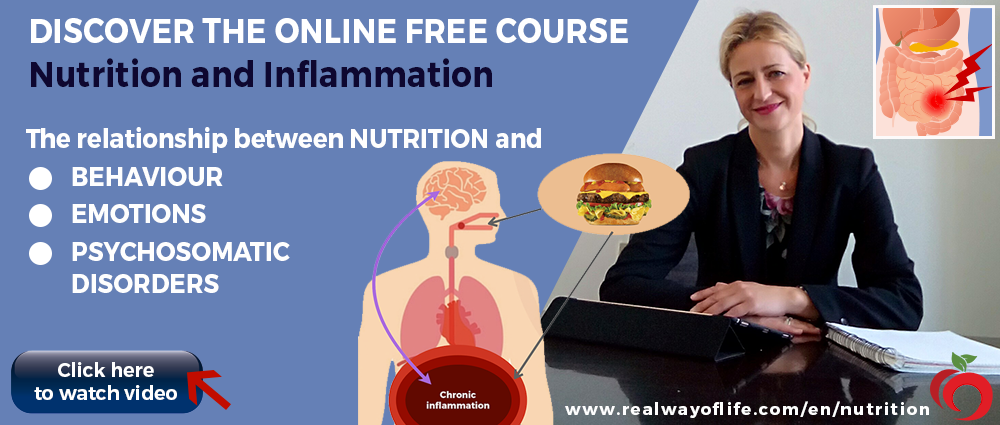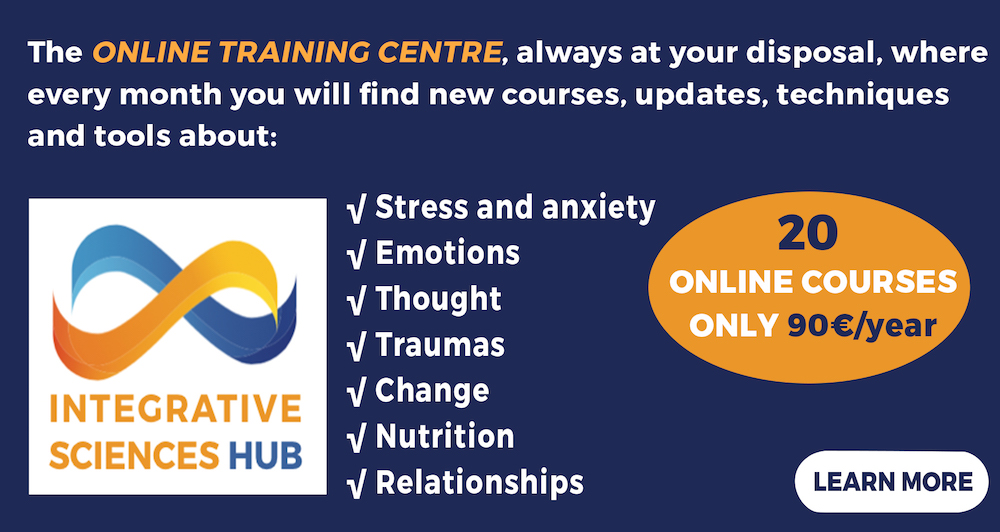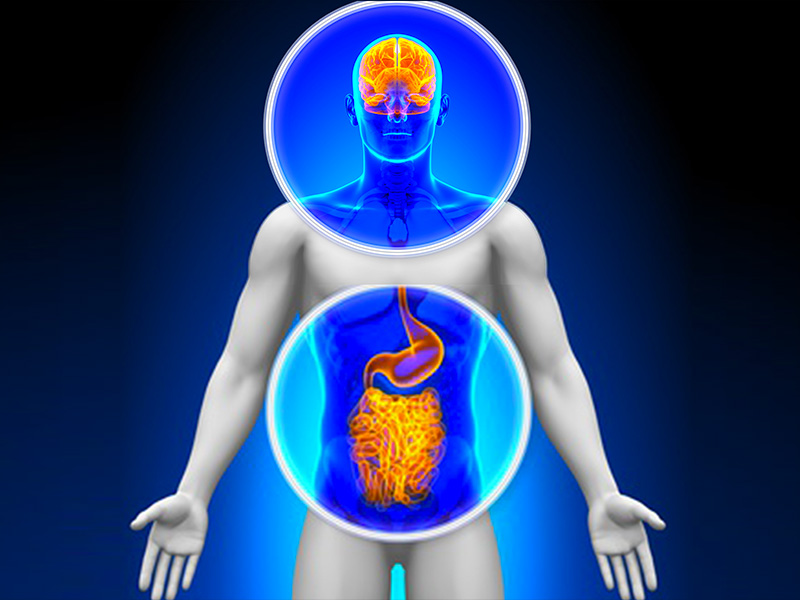
04 Sep Two Pounds of Bacteria in Our Body Can Adjust OUR MOOD – Connections between Intestine and Brain
Authors Fabio Sinibaldi and Sara Achilli
The Big Picture
It is universally known that, in order to be in both good physical and mental shape, our body needs to be in physiology. How PNEI (Psyco-Neuro-Endocrine-Immunology) clearly says, all systems are connected. If only one of them does not work properly, pathologies in organs far away from the impaired system can be experienced.
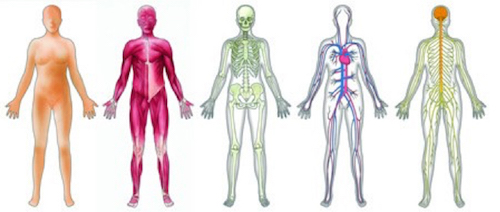
Brain and intestine, for instance, are directly linked through the vagus nerve. They exchange a bidirectional communication. Here are two examples: stress and negative emotions can damage the production of useful enzymes for digestion, while intestinal disorders can have a direct influence on stress.
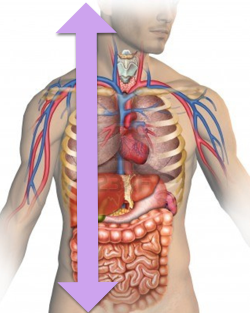
Intestine, also known as second brain, has an independent nervous network with more neurons than those on the spinal cord. The whole gastrointestinal apparatus plays an essential role in the health of the human body and the first brain. Think about serotonin, the happiness hormone. 95% of it is produced in the intestine. Its task in this part of our body is to start the peristaltic reflex, regulate digestive activities and its movements.
Intestinal inflammation activates an enzyme which destroys this hormone. A damaged intestine will therefore produce less serotonin for the brain. Many other substances (peptides) are produced by both the first and second brain, with different functions (for instance acetylcholine, ghrelin, opioids etc.) It is therefore obvious that the communication between these two systems is pretty intense, even more than we can think.
Not Everybody Knows That…
About this topic there is a less known but much more important fact. Many researches showed how a damaged intestine can have a direct influence on: mood, stress, depression, lack of motivation, phobias, obsessions, bulimia, memory-and-concentration related troubles, sleep disorders, nervousness, panic, tendency to addictions, and also lead to self immune diseases, chronic inflammations and several pathologies, even serious ones.
An improper digestion of food, eating refined or fat food, medications abuse, prolonged stress, lack of physical activity, are all factor causing intestinal inflammation which dramatically put the bacterial flora in danger and, consequently, the good functioning of the intestine and the immune system.
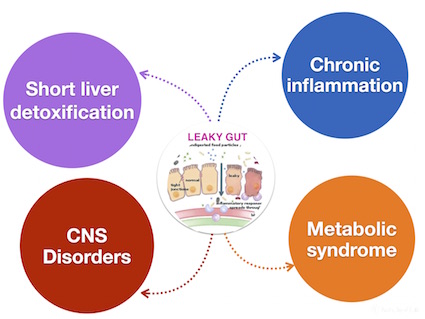 In the last few years it has become more and more evident communication between the two brains also involves interaction with intestinal microbiotic (bacteria living in our gastrointestinal apparatus) releasing signaling molecules which can play an important role in the regulation of the brain and in behavior. Microbiotics, for instance, produce neuroactive substances and its precursors (for example tryptophan) which can reach the brain through the endocrine system.
In the last few years it has become more and more evident communication between the two brains also involves interaction with intestinal microbiotic (bacteria living in our gastrointestinal apparatus) releasing signaling molecules which can play an important role in the regulation of the brain and in behavior. Microbiotics, for instance, produce neuroactive substances and its precursors (for example tryptophan) which can reach the brain through the endocrine system.
Through direct and indirect mechanisms (for instance with immune activation for the former and toll-like receptors on glial cells in the latter) bacteria may influence cognitive functions and our mood.
How Can We Set Our Intestine Back to Work Properly Again?

A first basic and important intervention for every situation, from chronic headache to anxiety and learning disturbs is restoring the damaged bacterial flora with targeted probiotics, taking advantage of prebiotic food, varying one’s diet eating a little bit of everything in order to correctly feed the more than 500 bacteria in our body, each one playing different roles for the correct functioning of our gastrointestinal apparatus.
It is also essential to reduce consumption of saturated fats and refined sugars (which lack vitamins and minerals) and increase physical activity. It is also possible to act on a more targeted level, in order to achieve improvements and restore more physiological mind-body responses for specific emotional reactions processes of somatization, allergies and intolerances, hyperactivity, concentration and more. Unfortunately, the conciseness of this article does not allow us to get more in depth.
If you are interested to know more, you can subscribe to our newsletter or attend our seminars, since a part of them is always about the role of nutrition with respect to the discussed topic.




